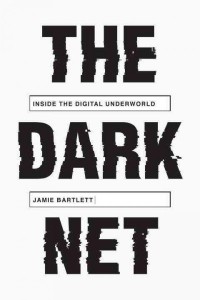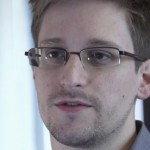 There are huge chunks of the Internet that can’t be found with your standard web browser. Criminals, anarchists, and trolls use encryption-enabled browsers to conduct their business anonymously in these dark corners of the net. In this fascinating Fresh Air interview, author Jamie Bartlett talks about his experiences in the dark net.
There are huge chunks of the Internet that can’t be found with your standard web browser. Criminals, anarchists, and trolls use encryption-enabled browsers to conduct their business anonymously in these dark corners of the net. In this fascinating Fresh Air interview, author Jamie Bartlett talks about his experiences in the dark net.
npr.org/sections/alltechconsidered/2015/06/03/411476653/infiltrating-the-dark-net-where-criminals-trolls-and-extremists-reign
Tag: security
Many people believe that privacy is a thing of the past. It’s true that our networked world makes it harder to keep secrets. But there are many things you can do to protect your privacy online. This Huffington Post article clearly outlines some quick fixes you can make in a few minutes.
 Malware makers are always coming up with new ways to exploit innocent computer users. One relatively new breed of malware, ransomware, encrypts files, making them effectively unusable, unless their owners pay ransom to the perpetrators. This short NPR story focuses on this very real threat.
Malware makers are always coming up with new ways to exploit innocent computer users. One relatively new breed of malware, ransomware, encrypts files, making them effectively unusable, unless their owners pay ransom to the perpetrators. This short NPR story focuses on this very real threat. Edward Snowden made a decision that changed the world. By leaking top secret government documents to the press, he revealed that US surveillance of private and public citizins goes far beyond what most of us had previously imagined. Because of those leaks, people all around the world are asking important questions about the balance between privacy and security in a free society. In a chilling statement to the BBC, Snowden claimed that he’d accomplished his mission by raising those questions. What do you think?
Edward Snowden made a decision that changed the world. By leaking top secret government documents to the press, he revealed that US surveillance of private and public citizins goes far beyond what most of us had previously imagined. Because of those leaks, people all around the world are asking important questions about the balance between privacy and security in a free society. In a chilling statement to the BBC, Snowden claimed that he’d accomplished his mission by raising those questions. What do you think?
theguardian.com/world/2013/dec/24/edward-snowden-channel-4-christmas-day-message
In his state of the union message President Obama explained that he was issuing executive orders to deal with cyber threats to government and business. He also encouraged congress to enact legislation. But as this NPR story explains, the problem may require a more aggressive approach that’s complicated by the fact that our information infrastructure is mostly owned by private businesses.
npr.org/2013/02/13/171843046/victims-of-cyberattacks-now-going-on-offense-against-intruders
Cyber-scammers are always looking for new ways to get you to reveal valuable personal information. Can you tell the difference between legitimate requests and cyber scams? Take this short quiz to find out. The quiz is a promotion for OpenDNS, a security company, but it’s worth your time even if you’re not shopping for protection. If you’re not able to identify all of the fake sites in the quiz, the feedback page will show you the clues that you missed so you can be more scam-savvy in the future.
opendns.com/phishing-quiz
Wired writer Mat Honan recently lost just about everything he had stored on his computer and in the cloud. He literally watched while a malicious hacker wiped out his digital world.
This NPR story suggests five things you can do to avoid his fate.
Mat’s Wired article describes the hacker attack in detail.
forbes.com/sites/parmyolson/2012/06/14/cyber-security-and-the-rise-of-the-silicon-based-life-form
If we think of digital technology as another life form, how does that change the way we think about, and interact with, that technology? This Forbes editorial suggests that it might improve the way we handle computer security.
thedailyshow.com/watch/mon-june-18-2012/parmy-olson
The secret global Internet subculture known as Anonymous has generated plenty of headlines, but most people don’t know much about it. Journalist Parmy Olson’s book, “We Are Anonymous”, reveals how the organization works and how it is evolving. In this light-hearted interview with Jon Stewart on the Daily Show she talks about what she learned writing the book.
http://www.ted.com/talks/gary_kovacs_tracking_the_trackers.html
If you think you’re covering your tracks as you explore the web, think again. This TED talk shows how we’re being tracked and suggests what we might need to do about it.